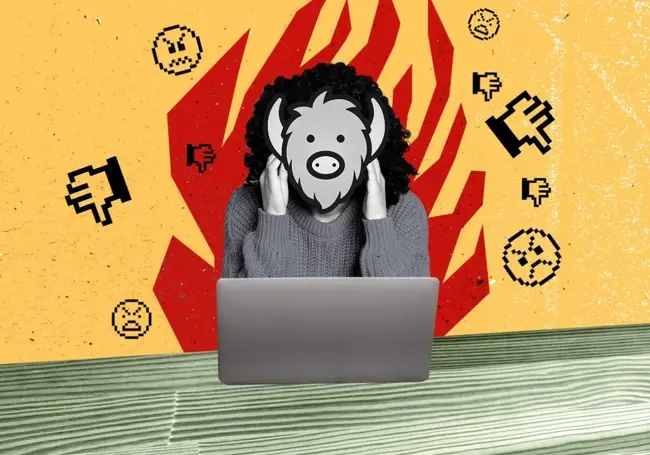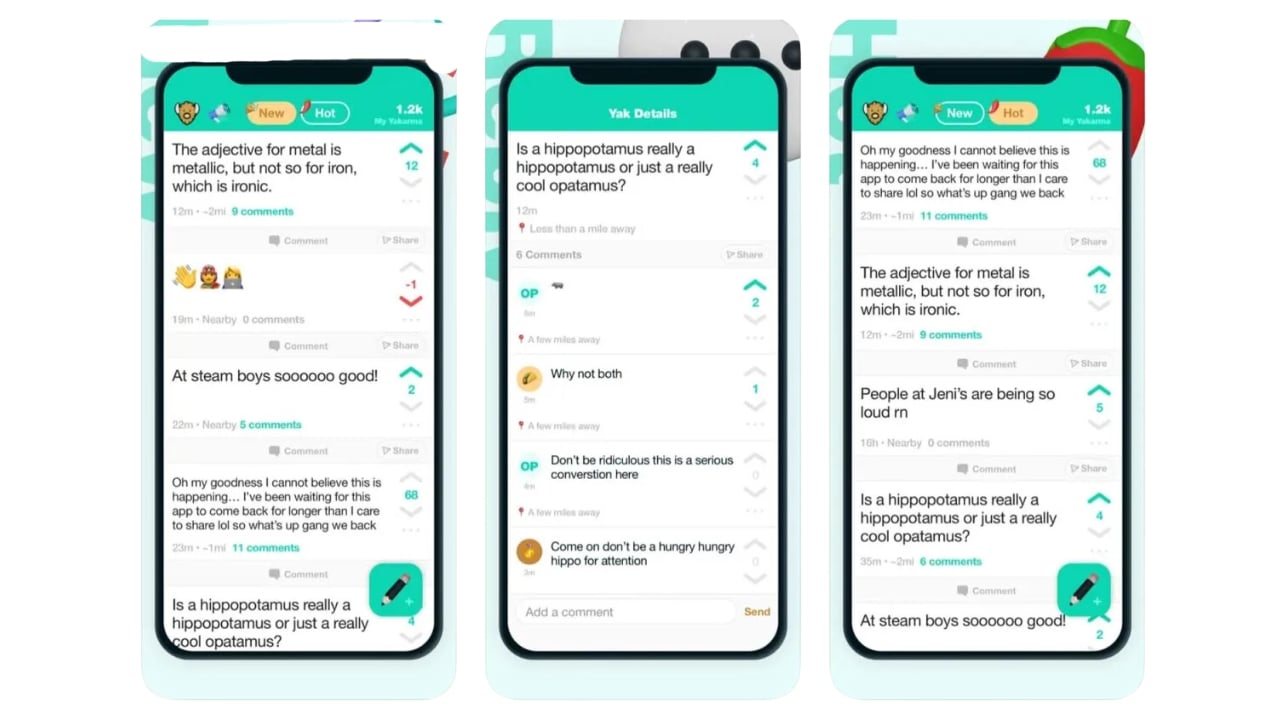Yik Yak, founded in 2013, soon became popular on college campuses. It allowed students to post anonymous messages visible to others around them. With anonymity promised, the app offered free and frank discussions and thus attracted the interest of many young people who wanted free expression.
Soon enough, however, that same feature revealed a dark undertone, as struggles by Yik Yak to rein in cyberbullying, hate speech, and threats eclipsed its early promise. The problems inherent in anonymity proved especially egregious in 2015 when several high-profile controversies surfaced. Stories of students threatening death on the app and racist comments proliferating outraged the public, and reactionary bans were implemented on campuses far and wide.
This eventually led to colleges and universities blocking access to Yik Yak, which led to continuously falling user numbers until its eventual shutdown in 2017. We now focus on two prime reasons for Yik Yak's failure: first, how its implementation of anonymity created huge problems, and second, how growing competition in other social networks nurtured that service's demise. Such analysis enables us to consider the difficult balancing of anonymity with accountability inherent in online interaction.
In this article, we explore why Yik Yak failed, examining how its anonymity feature led to significant challenges and how competition from other social media platforms contributed to its decline.

What is Yik Yak?
Yik Yak is a service that gives a live feed of real-time conversations happening around you. Unlike other anonymous messaging applications, the unique feature differentiating Yik Yak is that it is a location-based service that enables users to share and find discussions happening within a five-mile radius through GPS and instant messaging technologies.
Although Yik Yak was instantly popular on college campuses—where students could anonymously post in "yaks," each of which could be voted up or down and commented on by users in proximity to the original poster—it faced some major struggles that led to its demise.
Apart from that, the problems this application faced-for instance, cyberbullying, harassment, and inefficient protection of users-could not allow many users to enjoy their overall experience. Besides, the severe competition in the social media market, along with lagging in the issue of user engagement, contributed to its decay.
Rise of Yik Yak
The app was founded by college students Tyler Droll and Brooks Buffington and launched in November 2013. It quickly spread as students began to share it with new friends made during spring break. Just seven months later, Yik Yak was on 200 college campuses, a remarkably fast ascent.
By 2014, Yik Yak was valued at over $350 million, led by features such as its anonymity and the "peek" function to look into conversations in other areas. That "peek" feature let users see what people were saying at events like concerts or sports games, offering real-time insight into multiple happenings. It allowed users to share views, keeping their identity in the background, making it a secure avenue for frank discussions.

Another major factor contributing to Yik Yak's popularity was the voting system. Users would vote up their favourite "Yaks" or vote down boring ones. The most upvoted Yaks hit the "hot" stream, while posts reaching a score of -5 got deleted from the feed. Such dynamic interaction kept not only the content fresh and relevant but also created a shared sense of community among users: users together decided whether posts would remain visible or not.
Why did Yik Yak Fail?
Yik Yak enjoyed very short-lived success due to huge challenges it faced regarding cyberbullying, hate speech, and threats. Eventually, the institutional bans and decline of users led it to shut down in 2017.
However, perhaps one of the most appealing selling points for people to take up Yik Yak was the promise of anonymity: sharing thoughts and views without giving out any identity. This became a two-edged sword. It has fostered candid discussions, but it also opened the gates to an uprising of cyberbullying, harassment, and hate speech. This app has also raised a big problem by failing effectively to moderate the content and prevent misuse. Consequently, several schools and colleges all over the country started banning the app on campus for the safety and mental well-being of students.
In 2015, various controversies plagued Yik Yak, revealing the darker side of the app. Two of those incidents included two students getting arrested for death threats on the application against Black people that brought into crystal-clear view the ways in which the app could be used for nefarious means. Similarly, racist remarks on Yik Yak resulted in 500 community members rallying at Colby College, which further exacerbated the situation of anonymous online harassment. These incidents gained negative publicity and louder pleas for the app to be banned within schools and higher education.
As concerns about student safety and mental health grew, schools started to block Yik Yak from their networks. Institutions like Oklahoma Christian University blocked access to the app and website through their Wi-Fi services as far back as 2014, greatly limiting Yik Yak's reach to its most apparent market: college students. By at least 2016, at least, the user base for the app began to shrink. Although the developers of Yik Yak tried to direct the app away from misuse by demanding user handles, this change alienated many users who liked the total anonymity it provided. Yik Yak is also facing severe competition with other platforms, such as Snapchat and Instagram, which offer more features and experiences, not to mention safety.
Because of this, many former users of Yik Yak started migrating to its competitor platforms, which further caused its death. In April 2017, Yik Yak announced it would shut down, and by May, the app was officially taken out of service. Internal issues mixed with external competition sealed the fate of Yik Yak and made it a cautionary tale about the complexities of anonymity on social media.
The Return of Yik Yak
The return of Yik Yak has been one of the most talked-about events in the world of anonymous social media in recent years. Fast forward to 2021, and Yik Yak’s comeback has surprised many. The app returned with a revamped strategy and fresh features, addressing past issues while reigniting interest in anonymous communication. The relaunch of Yik Yak 2024 marks a new era for geographically-based social networking, focusing heavily on creating positive interactions among local communities. The platform has refocused its efforts on making the app safe and enjoyable for users, with a specific emphasis on college campuses and other tight-knit groups.
So, why is the return of Yik Yak generating so much buzz? The app’s ability to offer a space for local discussions and anonymous posting makes it stand out in the crowded world of social media. Unlike traditional social platforms, where users are expected to create profiles and post with their real names, Yik Yak allows for anonymous engagement, providing a sense of freedom and privacy that other platforms don’t offer. This has sparked a renewed debate about the role of anonymity on social media and its impact on online interactions.
With Yik Yak’s return to the app store, many wonder whether this shift toward anonymity will become a trend in the future of social media. Will more platforms adopt features focused on anonymous posting, or will the push for online transparency continue to dominate? The return of Yik Yak has revived questions about privacy and the potential for positive anonymous interactions in an age of increasing social media scrutiny.







Comments ( 0 )